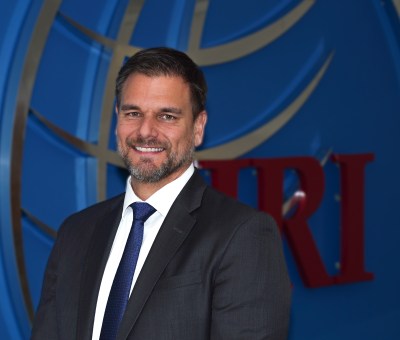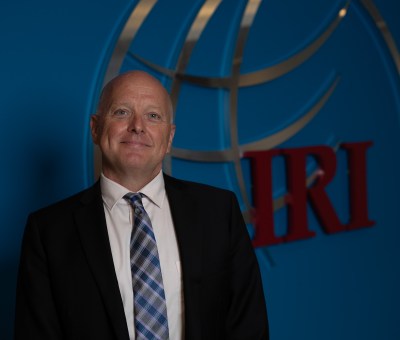Mozambique’s 2024 Elections: Prospects for the Global Fragility Act
On June 13, 2024, the International Republican Institute (IRI) convened a private roundtable discussion on Mozambique. The event focused on Mozambique’s October 2024 national elections, what they portend for the country’s future stability, and how the U.S. government can support via diplomacy and programs, particularly considering the recently released 10-year strategy to prevent conflict and promote stability. The event included participants and speakers from U.S. and Mozambican civil society, media, think tanks, academia, and the U.S. government.
Context, Considerations, & Challenges
- This year’s elections in Mozambique are receiving insufficient attention due to competing priorities (19 elections this year in Africa alone). Though democracy is about more than elections, they still provide a visible stress test for the democratic health of a society. Most of the challenges facing Mozambique today – insurgency, corruption, repression, and democratic reversal – stem from governance challenges, including how leaders are selected or elected. Without open political space and competitiveness, incumbents can act without public accountability. If this year’s election improves on past processes, it can help advance a sense of equitable inclusion, which will help to determine Mozambique’s democratic future and its stability.
- The 2023 municipal elections were marked by irregularities and violence, and were not perceived to reflect the will of the people – presenting a challenge to the upcoming electoral process. There were some bright spots, such as displays of independence by judges (who were later overruled by the Constitutional Court), but overall, the elections fell short of expectations.
- Political violence in the country is worsening. 2023 saw the highest number of reported incidents of election violence since Armed Conflict Location and Event Data (ACLED) data collection began while the beginning of 2024 has witnessed insurgency-related violence surge. Violent extremism and political apathy in the country stem from the fact that many citizens believe they have no independent avenues for meaningful civic engagement or a voice in decision making. Political inclusion is essential to promoting the conditions necessary for sustainable peace, development, and economic growth. If results don’t align with citizen’s expectations, there will likely be mass protests, and if past patterns re-emerge, police responses that risk increased electoral violence. More broadly, elections perceived to be illegitimate may continue to fuel underlying drivers of violence in the country: polarization and social mistrust, weakened government legitimacy, disillusionment with democratic ideals and governance, and risks for additional violence.
- The insurgency in Cabo Delgado will likely impact, and be impacted by, the elections. Insurgents are likely to discourage residents from voting – such as through intimidation – as part of a broader effort to undermine state presence and governance in the province. Residents of Cabo Delgado will likely display an element of neutrality toward the insurgency and the government. However, if citizens in Cabo Delgado are disenfranchised for many reasons, the insurgents will likely leverage any disillusionment to further undermine faith in the government. Given the opacity of the deal made with Rwanda, which has been critical to fighting back the insurgency and recently expanded its presence, it’s unclear if the partnership will be sustained.
- The public perceives many political actors as illegitimate given the perceptions that they were not elected via a democratic process. Nevertheless, FRELIMO’s candidate, Daniel Chapo, was a surprise choice and will need to consolidate power within the party. Some are optimistic about his candidacy and anticipated success in contending for the presidency. His youth improves his appeal and thus the likelihood of a fairer election. Though FRELIMO has a better chance of winning, it is unlikely that the electoral process will enable voters to equitably make their choice.
- The political opposition is very divided and comparatively weaker than FRELIMO, more so than in previous elections. RENAMO’s presidential candidate selection process was rigged in favor of current party president, Ossufo Momade, who is very unpopular with large swaths of the electorate. The party’s base is increasingly composed of pensioners and former civil war guerillas. MDM is also headed by an unpopular figure, Lutero Simango, though some popular civil society figures are contesting on the party’s list. Additionally, Venancio Mondlane, former RENAMO candidate for Maputo mayor and youth favorite, is running for president as the head of a new coalition after being excluded from the RENAMO nomination process.
- Prospects for the 2019 Maputo Accord are unclear and could be worsened by this year’s elections. RENAMO held up its end of the bargain by disarming, but FRELIMO has stymied the decentralization process. District elections have been unilaterally and indefinitely postponed while provincial elections are marred by irregularities and the power of those elected is confused by the mandate of centrally appointed secretaries of state.
- The U.S. government has committed considerable resources in partnership with Mozambique, including the U.S. Strategy to Prevent Conflict and Promote Stability 10-Year Plan for Mozambique and a recent Millennium Challenge Corporation (MCC) compact. Both provide opportunities to strengthen engagement with Mozambique. The U.S. has committed $50 million in new prevention and stabilization funds to support these efforts, in addition to the hundreds of millions of annual assistance to improve healthcare, education, and economic growth. U.S. government stakeholders continually engage with the government of Mozambique, likeminded countries, and civil society to identify ways to align existing funds with the new strategy. For example, following the 2023 municipal elections, the Millennium Challenge Corporation, which signed a $500 million compact with the Government of Mozambique in 2023, engaged the government, political parties, and civil society, and encouraged them to take concrete actions to strengthen political rights and protect civil liberties. Ahead of the October elections, the U.S. has been supporting civil society to improve its ability to conduct evidence-based advocacy, undertaking targeted interventions to support election observation and dispute resolution, promoting civic education, particularly among women, youth, and persons with disabilities, and funding human rights defenders to monitor election violence and address escalating threats. More coordination between the U.S. government, implementing partners, and local stakeholders is essential ahead of October’s elections, and any programming must be adequately funded and evaluated, embodying adaptive management and continuous learning. Flexibility and innovative new approaches are key.
Recommendations for U.S. Government Stakeholders
- Increase elections-related program support to Mozambique given the timeliness of elections and risks that these elections could be the worst to date. Though time is short, efforts must be made to ensure civic space is kept open.
- Though elections are only three months away, the U.S. government and implementing partners can and should take immediate action to promote a more participatory environment and support the integrity of the elections.
- Prevent and mitigate electoral violence:
- Diplomatically stress that the bar for election violence is zero.
- Deploy long-term security monitors that can highlight risks and support collaborative, localized interventions.
- Support civilian early warning and de-escalation components. Community security councils serve as a key entry point to build relations between communities and the police, which remains a key gap, including in the context of countering violent extremism. Current U.S.-funded efforts to promote social cohesion through peace clubs, sports, and arts are a step in the right direction.
- Identify and engage influential stakeholders who have the capacity to choose violence or nonviolence, escalation, or de-escalation.
- Secure public commitments from FRELIMO, RENAMO, and other key actors to shun violence. While peace pledges do not necessarily lead to less violence, it is imperative that the main actors who may instigate be up front and pressured, allowing citizens to hold them accountable to their commitments.
- Diplomatically stress that the bar for election violence is zero.
- Increase the legitimacy of the election and ensure that the right of the Mozambican people to choose their leaders is protected.
- Field an international election observation, conduct technical assessment missions, and/or put forward long-term analysts.
- International actors must amplify what citizen observers, civil society, journalists, and others on the ground are doing.
- Train and support local observers and journalists to increase electoral accountability in all phases of the process and protect them from harassment, restrictions, and targeted violence. The media space is particularly essential since what people say on social media has an impact on people’s perception and acceptance of violence and democratic ideals.
- Strengthen the judiciary to adjudicate electoral matters while also training journalists and human rights defenders to access those mechanisms.
- Field an international election observation, conduct technical assessment missions, and/or put forward long-term analysts.
- Increase civil society support for civic and voter education.
- The current level of support is insufficient for the needs ahead of this election, especially considering turnout was 51% in 2019 and voter apathy is only increasing. Programming should especially target marginalized communities to promote cohesion, trust, legitimacy, and good norms around the election.
- The current level of support is insufficient for the needs ahead of this election, especially considering turnout was 51% in 2019 and voter apathy is only increasing. Programming should especially target marginalized communities to promote cohesion, trust, legitimacy, and good norms around the election.
- Double down on efforts to invest in parties, leaders, and civil society post-election, with a particular emphasis on citizen-centered governance.
- Parties especially are weak and need support and resources to be able to compete effectively.
- Rebuild trust and relationships between people and their government at the local and national levels through constituency-elected officials and engagement around areas of shared interest (e.g., service delivery).
- Parties especially are weak and need support and resources to be able to compete effectively.
- Deploy diplomatic leverage as necessary.
- Take a stronger stance against fraud, including with likeminded partners, and align words with actions.
- Condition future assistance on the outcome, particularly efforts that benefit the government.
- Suspend all security cooperation activities if security forces are involved in violence against civilians.
- Consider suspending the MCC compact if the elections are less legitimate than in the past and/or marked by substantial violence.
- Suspend all security cooperation activities if security forces are involved in violence against civilians.
- Reconsider the levers the U.S. government has to pressure the Mozambican government to reform, such as enhancing collaboration with the Departments of Treasury and Defense on the Global Fragility Act strategy.
- Take a stronger stance against fraud, including with likeminded partners, and align words with actions.
- Prevent and mitigate electoral violence:
Contact Information:

Will
Meeker
Senior Director, Africa

Gregory
Kearns
Director, Africa

Jenai
Cox
Regional Deputy Director, Africa

Santiago
Stocker
Program Director, Sudan